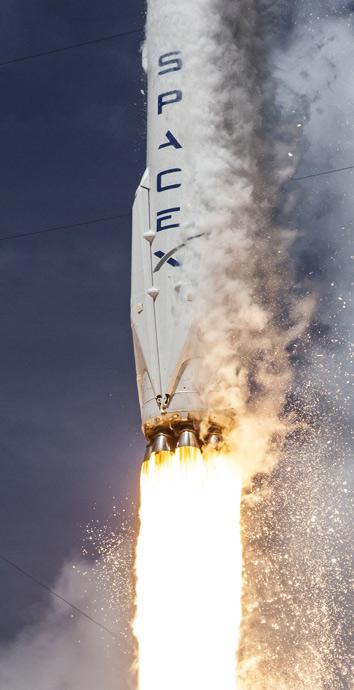Last year, the space technology company SpaceX sued the U.S. Air Force over what it saw as an unfair practice; the USAF gave a “sole source” (uncompeted) contract to United Launch Alliance for a series of rocket launches for national security satellites. SpaceX said it had earned a right to be at the table to bid for such contracts. At the time, though, the problem was that the SpaceX Falcon 9 rockets had not been rated and approved for such missions.
The disagreement appears to have been settled: SpaceX has dropped the lawsuit, and for its part the USAF has agreed to help “complete the certification process in an efficient and expedient manner.” It’s also agreed to open up future launches to competitive bids while still maintaining existing contracts with ULA.
This sounds like a decent solution to me. SpaceX has been going gangbusters lately, and if there are no problems going forward (and it’s rocket launches, so you never know), then the Falcon 9 should be a competitive vehicle for the government to use for some of its necessary launches. ULA launches Delta and Atlas rockets, which are great and very reliable vehicles, but pricy.
Right now, the Delta IV Heavy is the most powerful rocket currently in use anywhere, capable of getting nearly 30 metric tons of payload to low Earth orbit, or LEO—that’s why it was used for NASA’s first Orion capsule test launch. The Falcon Heavy, due for its first test flight later this year, will have much higher payload capacity, putting 53 metric tons into LEO.
Once the Falcon 9 is approved by the USAF, I’d think that would pave the way for a similar process with the Falcon Heavy. SpaceX is confident it can launch the Falcon Heavy for a much lower cost than the Delta IV Heavy, too. Pricing, especially when it comes to government contracts, can be very tricky, so I’ll be interested to see how that pans out.
Taking a step back, the good news is there will be competition for launches, and that’s A Good Thing. It keeps companies on their toes, and tends to drive prices down. I’m all for competition, as long as the playing field is even, with no arbitrary (or political) roadblocks thrown in the way.
One thing I’m still curious about: ULA uses a Russian-built RD-180 engine for their Atlas V first stage. Given Russia’s antics lately, that makes me uncomfortable. However, there’s news that ULA is partnering with rocket company Blue Origin (founded by Amazon’s Jeff Bezos) to build a replacement engine. That’s cool—for a short time a judge laid an injunction against ULA from using the Russian engines, though that was lifted soon thereafter. But Blue Origin is notoriously secretive, so it’s hard to comment on its ability to deliver. I rather hope that works out; again, more competition is better.
As an aside, Orbital Sciences Corp. (which has successfully—and not so successfully—launched rockets to resupply the space station) announced it is merging with rocket engine company ATK. Clearly, there’s burgeoning business off-planet.
And on top of all this, very soon there will be American human-rated vehicles once again capable of taking humans into space. A lot of people are lamenting our current situation, but I remind them: This drought of American-launched human spaceflight is going to end soon, and when it does, there very well could be a solid future in space ahead of us.
